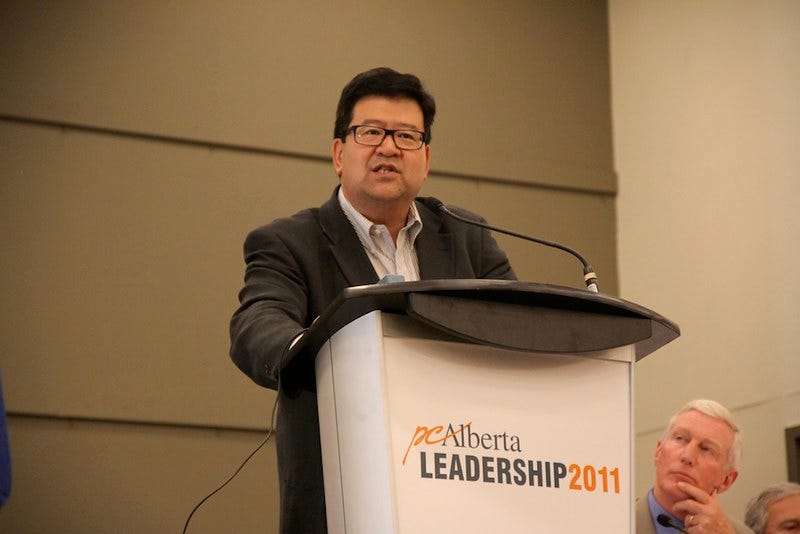How lobbyist narratives shape the news
A collaboration from Jacobin and Ricochet tracks corporate lobbyists' appearances on Canadian media panels

Canadian news panels are stacked with corporate lobbyists whose conflicts of interest are often not disclosed, according to a joint investigation from Jacobin and Ricochet written by Jon Horler.
The investigation reviewed the six weeks of coverage from four CBC shows (Power & Politics, The National, Rosemary Barton Live, and CBC News Live), three CTV programs (Power Play, CTV National News, and Question Period) and two Global shows (The West Block and Global National) to examine how many of their guests were corporate lobbyists and how many of these connections were disclosed.
From the piece:
Jacobin and Ricochet’s review of Canadian television news commentary and analysis from March 29 to May 9, 2021, catalogued data on more than 860 relevant television appearances. More than one in every 10 guests analyzing the news worked for firms paid to influence the government and the public. Despite their vested interests, networks often described these panellists as “strategists.”
Among on-air commentators, lobbyist or PR professional was the fourth-most-common occupation. Government officials and politicians, journalists, and medical professionals (during a pandemic) were the only occupations more commonly featured.
Corporate influencers are, unsurprisingly, more often present in discussions of certain key issues. Across Canada’s big three networks — CBC, CTV and Global — one in every five guests brought on to comment on climate change, one in every five guests analyzing the federal budget, and a staggering one in every three guests analyzing federal politics were active in the PR industry.
Despite the growth in online news consumption, nearly half of Canadians get their news coverage from the TV, representing by far the single largest medium for news consumption.
Former Alberta United Conservative Party president Erika Barootes, who now works for national lobbying firm Enterprise Canada, appeared on the CBC three times to talk about the pandemic. The public broadcaster didn’t reveal that Barootes is a registered lobbyist for Astellas Pharma Canada Inc. and Shoppers Drug Mart.
Even more damning, Barootes is a registered lobbyist in three provinces for Purolator, where she specifically lobbied at least one government on COVID-19 vaccine distribution logistics.
Her affiliation with Enterprise was disclosed without explaining what Enterprise does, a practice CBC ombudsman Jack Nagler has acknowledged as “rather pointless” for those outside the Ottawa bubble.

The Ceeb also invited Jenni Byrne to discuss the pandemic. Byrne, a former advisor to Ontario Premier Doug Ford and former prime minister Stephen Harper, was a registered lobbyist for Tridan/CBS Group Inc. She was featured while these companies were bidding on a government contract for rapid testing kits, a fact that was not disclosed.
Not to be outdone, CTV had Canada West Foundation president Gary Mar — a former Alberta PC leadership contestant — on Power Play to talk about Michigan’s potential shutdown of Enbridge’s Line 5 pipeline, which brings fossil fuels to Ontario and Quebec via the U.S.
The network neglected to disclose that Canada West is funded by fossil fuel interests, including at least $50,000 a year from — you guessed it — Enbridge.

Though CBC and CTV are both guilty of this practice (the investigation found that disclosure wasn’t an issue at Global), the CBC is a much more prolific offender:
The proportion of guests who were journalists or medical professionals was roughly the same across both CTV and CBC. However, the proportion of commentators on CBC whose day jobs were in lobbying or PR was roughly double that of CTV.
Although COVID-19 dominated the news, making up nearly half of the news coverage on both networks, one in every seven guests appearing on the CBC programs was from a lobbying or government relations firm. This is roughly the same proportion as that of medical professionals invited onto panels during a pandemic.
The role of corporate lobbyists in shaping media coverage is likely apparent to anyone who consumes enough mass media with a critical eye. But it’s about time someone got the data to back it up in a Canadian context.
Many Canadians have been glued to news coverage of COVID and it’s important they know which interests TV experts represent.
In other news …
Toronto public school trustee reprimanded for anti-Palestinian and Islamophobic communications
A report from the Toronto District School Board’s integrity commissioner found that trustee Alexandra Lulka promoted discrimination against Palestinians and Muslims when she equated pro-Palestinian sentiment with anti-Semitism.
Lulka shared a hit piece on social media from notorious Islamophobic fabulist Sue-Ann Levy against anti-racist educator Javier Dávila. In May, Dávila distributed resources to teachers about how to teach the Palestinian narrative of the Israeli-Palestinian conflict without veering into anti-Semitism.
Lulka agreed with the author that Dávila’s materials were “virulently anti-Israel and even antisemitic [sic].”
The report concluded that Lulka “fundamentally mischaracterized” the content Dávila provided to teachers.
Amazon using automated program for firing workers in Canadian warehouses
PressProgress has obtained documents that show Amazon’s use of a surveillance software that “automatically” targets employs for “termination” if they can’t keep up with ever-increasing productivity targets.
From the piece: Amazon’s expectations of how fast warehouse workers should scan boxes is data-driven. The company’s productivity targets are tied to the speed at which 75% of the warehouse’s fastest workers move and typically excludes data from the slowest 25%.
“You’re never able to shut off that voice in your head that’s telling you ‘you’re not working fast enough’. It’s always there,” said one employee.

